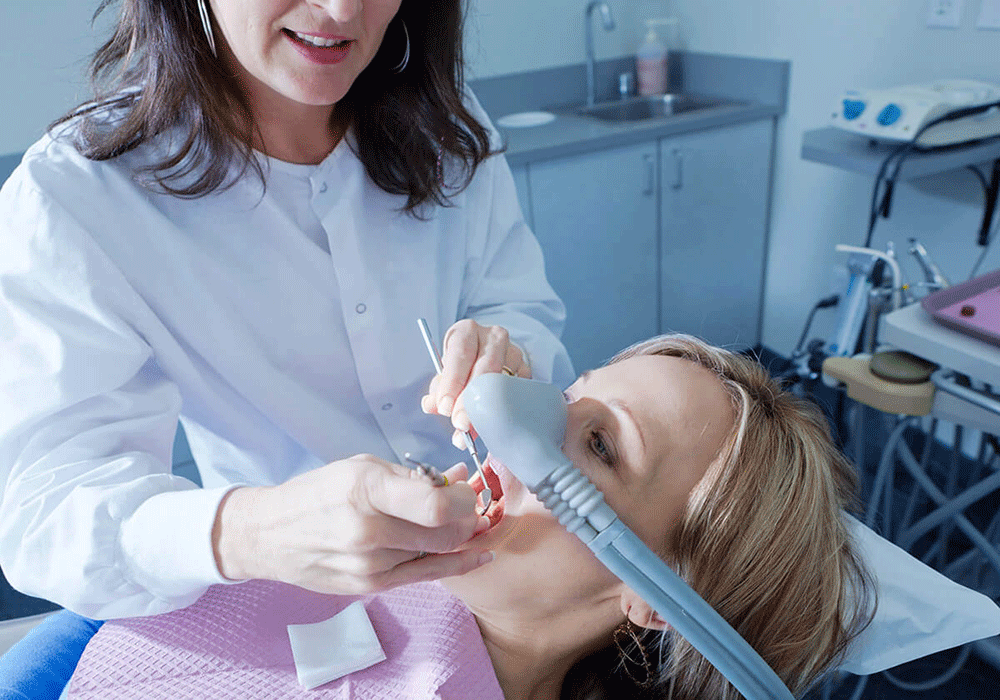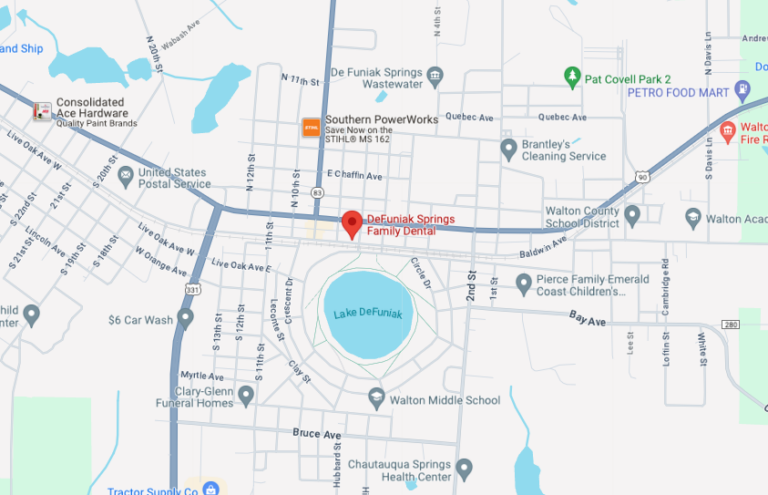Sedation Dentistry
Experience stress-free dental care at DeFuniak Springs Family Dental with our sedation dentistry options. Choose from Nitrous Oxide, Oral Sedation, or IV Sedation to ensure a comfortable and anxiety-free visit.
Sedation Dentistry in DeFuniak Springs, FL
At DeFuniak Springs Family Dental, we prioritize patient comfort with our sedation dentistry options, designed to ease dental anxiety and make your visit stress-free. Choose from Nitrous Oxide (laughing gas) for mild sedation with quick recovery, Oral Sedation for a deeper, needle-free relaxation, or IV Sedation for the most comprehensive procedures, providing controlled sedation directly through the bloodstream. These methods ensure that patients can receive necessary dental care in a comfortable, anxiety-free environment, making every appointment a positive experience. Whether it’s a routine cleaning or a complex procedure, our sedation options help you achieve a healthier smile comfortably and safely.

-
What is laughing gas and what does it do?
Laughing gas, scientifically known as nitrous oxide, is a colorless, sweet-smelling gas commonly used for sedation in medical and dental procedures. It works as a mild sedative, which helps to relax patients by inducing a feeling of euphoria or calmness. When inhaled, it reduces anxiety and pain sensitivity, making it easier for patients to undergo treatments without stress. The effects of laughing gas are mild and short-lasting, and it wears off quickly once the gas is removed, allowing patients to recover almost immediately without lingering side effects.
-
What type of anesthesia are used for dental work?
There are several types of anesthesia used in dental work to manage pain and anxiety, each suited to different procedures and patient needs:
- Local Anesthesia: This is the most common type of anesthesia used in dentistry. It involves the injection of an anesthetic directly into the area of the mouth being treated to numb it. Drugs such as lidocaine are typically used, ensuring that the patient remains awake and aware but does not feel pain in the specific area being treated.
- Nitrous Oxide: Also known as laughing gas, nitrous oxide is inhaled through a mask. It helps patients relax and reduces pain sensitivity but does not put them to sleep. The effects wear off quickly once the mask is removed.
- Oral Sedation: This involves the patient taking a prescribed sedative pill before the procedure. Depending on the dose, the sedation can range from minimal to moderate. Under oral sedation, patients are usually awake but in a relaxed state.
- IV Sedation: Administered directly into the bloodstream through a vein, IV sedation allows for deeper sedation levels. Patients under IV sedation are usually conscious but in a deeply relaxed state, and they may have little memory of the procedure afterwards.
- General Anesthesia: Used for more extensive dental surgeries or for patients with severe anxiety, general anesthesia renders the patient completely unconscious. It is administered either through inhalation or intravenously.
The choice of anesthesia depends on the complexity of the dental procedure and the patient’s medical history, anxiety levels, and preference. Dental professionals are trained to select and administer the appropriate anesthesia to ensure patient comfort and safety during dental treatments.
-
What should I expect with IV Sedation?
When undergoing IV sedation for dental work, you’ll first have a pre-procedure consultation to review your medical history and fasting requirements. IV sedation is quickly administered through a vein, causing you to feel relaxed and drowsy almost immediately, though you’ll remain conscious enough to respond to verbal cues. Your vital signs are monitored throughout the procedure, and the effects of sedation may cause grogginess, necessitating a ride home and avoiding operating heavy machinery for 24 hours. You should rest for the day and can expect to recover fully by the next day. IV sedation is safe and effective for reducing anxiety and discomfort during extensive dental treatments.
More Questions?
If you have more questions about sedation dentistry, please contact our office, and we will be happy to discuss further.

